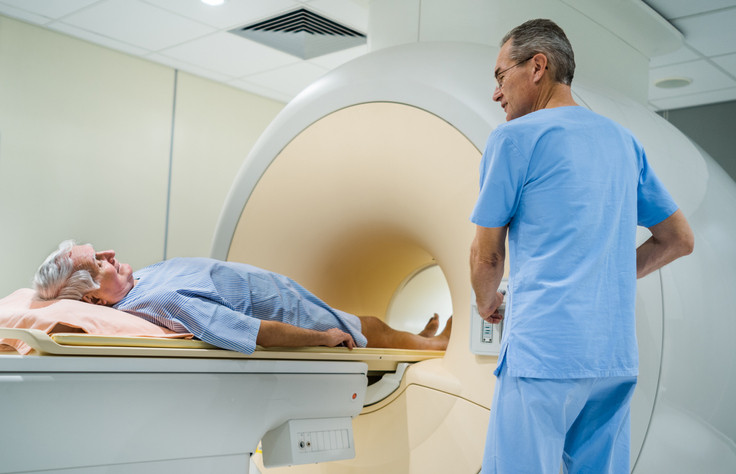Radiation after prostate cancer surgery may not be necessary
In the journals
Many men with prostate cancer who have a radical prostatectomy (prostate removal) receive radiation therapy afterward to wipe out any residual cancer cells. Alternatively, men can choose to delay radiotherapy and be monitored for evidence of prostate cancer activity, such as a rising blood level of prostate-specific antigen (PSA). If PSA testing or an imaging test like an MRI shows cancer, these men can then consider radiation therapy.
According to the findings of an analysis published online Sept. 28, 2020, by The Lancet, there is no clear benefit of immediate radiation over monitoring with later radiation therapy as necessary. Since some men will never need radiotherapy, this means that by forgoing immediate treatment, they can avoid potential side effects like incontinence and bowel problems.
To do the study, researchers combined data from three randomized trials, involving a total of more than 2,000 men who had undergone a radical prostatectomy. The men were assigned either to receive immediate radiation or to be monitored and given radiation only if signs of cancer emerged. The analysis showed that both approaches had similar outcomes, with no difference in cancer recurrence within five years. The researchers suggested that monitoring with later radiation therapy only if needed now may be the preferred strategy.
Image: skynesher/Getty Images
Disclaimer:
As a service to our readers, Harvard Health Publishing provides access to our library of archived content. Please note the date of last review or update on all articles.
No content on this site, regardless of date, should ever be used as a substitute for direct medical advice from your doctor or other qualified clinician.
















